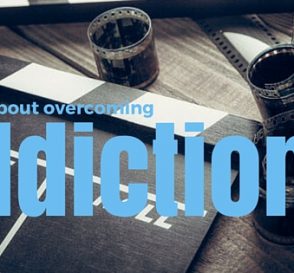The ICD-10 term stands for the International Classification of Diseases and this is the tenth edition. In 2015, the World Health Organization (WHO) implemented this new coding and started using the latest system.
ICD-10 codes are beneficial and vital for numerous reasons. Healthcare providers and professionals use them to maintain the person’s medical records.
Classifying bipolar disorder with ICD-10 codes additionally guarantees that a person is getting the best medical care. It provides a clear information about the person’s health condition which psychiatrist reads in the chart, and this is really beneficial if a person moves to a new health care professional or doctor then he or she will be able to get a proper treatment for the Bipolar disorder ICD-10.

What is Bipolar Disorder ICD-10?
Bipolar disorder ICD-10 is also referred to manic-depressive illness is a sickness which is characterized by the episode of mania and depression. A person having bipolar disorder can have very high mood swings ranging from excessive highs (mania) to hopelessness(depression). In some persons, mixed symptoms of both mania and depression can be seen at the same time. The mood disorder can last from a few days to several months in a person if not treated properly. A person with Bipolar disorder ICD-10 can have ten episodes of mania or depression in the lifetime.
Depressions used to last longer than manic episodes. The occurrence of episodes generally increases with the time and person’s who experience four or more episodes of mania and depression in a year are said to have rapid cycling.
Bipolar disorder ICD-10 can be treated by the psychiatric or psychological counselling and treatment. It’s difficult to find a correct and proper medication for treating the disorder but when the proper medication is found then the patient should take it responsibly.
Bipolar disorder ICD-10 is a serious illness and it is quite difficult to live with the disease. People suffering from the bipolar disease has to take a lot of medications in order to keep the disease under control. People with the disease can lead a happy and productive life if they properly take medications and receive counselling on time.
Schizoaffective Disorder ICD-10
Schizoaffective disorder ICD-10 is a mental sickness characterized by peculiar thought processes and deregulated feelings. The diagnosis is marked by the features of both schizophrenia and a mood disorder. The bipolar type is seen by signs and symptoms of mania, hypomania, or combined episode, the depressive type is marked by the symptoms of depression. Some common signs of the ailment include hallucinations, delusions, and disorganized speech and thinking. The signs of the disease may begin in young adulthood. Diagnosis of the disease is based on behaviour and the person’s experiences.
The factors which contribute to Schizoaffective disorder ICD-10 are Genetics, neurobiology, early and present-day surroundings, behavioural, social, and experiential factors. human beings with schizoaffective ailment are in all likelihood to have co-occurring situations, including tension issues and substance use issues. Social problems such as unemployment for a long period of time, poverty and homelessness are common reasons.
The life expectancy of people with the disease is shorter than the ones without it, due to increased bodily health troubles from a lack of health-promoting factors including a sedentary way of life and a high suicide rate.
Depression ICD-10
Depression ICD-10 is a mental condition which is associated with feelings of despair, sadness, and difficulty in dealing with daily life. Other peculiar symptoms related to depression are feeling of hopelessness, loss of pleasure in activities, changes in eating or sleeping and thoughts of suicide or death. Depression can be seen in any person and can be easily treated.
Depression ICD-10 is a disease which is usually manifested by means of both a dysphoric mood or loss of interest or satisfaction in normal activities. The mood disturbance is distinguished and relatively persistent.
A severe clinical disease that is related to the brain is called depression. Depression persists for a longer period of time and interferes with the person’s regular daily life.
Symptoms of depression ICD-10 include:
• Feeling Sad
• Loss of interest or pleasure in activities
• Change in body weight
• Difficulty in sleeping or oversleeping
• Loss of energy
• Feeling of worthlessness
• Thoughts of death or suicide
Depression ICD-10 is a mental sickness related to the brain. There are various causes for depression such as genetic, psychological, environmental and biochemical factors. It generally begins between the ages of 15-30 and is commonly seen in women. Sometimes after the birth of the baby depression occurs in women. Depression is a part of a bipolar disorder. Treatment for depression are available now including antidepressant and talk therapy. Most people use both of these treatments for the depression.
Mood Disorder ICD-10
People usually feel sad or irritable sometimes and say they are in a bad mood. A mood disorder influences a person’s regular emotional state. Person’s aged 18 and above seem to have mood problems. These mood disorders consist of depression and bipolar disorder (also known as manic depression).
Mood disorder ICD-10 is a condition where disturbance is characterized by the person’s mood. Mood disorder ICD-10 cause several diseases like heart disease, diabetes, and other diseases. The treatment in mood disorders involves medication, psychotherapy or a combination of both. Treatment helps in curing mood disorders in an effective way.
Mood disorder ICD-10 are divided into different groups such as elevated mood, depressed mood, and moods which occur at intervals between mania and depression known as bipolar disorder.
Thus, it is seen and concluded that bipolar disorder, depression, mood disorders can be properly treated and cured if diagnosed and given the required medication at the time. People after getting a proper medication and treatment can live a happy and active life. Do provide your feedback on this article as we tried to keep this topic very simple and thus also broken down them to pieces.



